Every year, pharmaceutical companies flood the markets with loads of drugs and therapies, with many more either in the development pipeline or clinical trials showing promising results. As a pharma company on the verge of launching a game-changing drug for treating certain diseases, how can it ensure its therapeutic product truly stands out in the market and gets the recognition it deserves?
The backing of industry experts and healthcare stakeholders–in the form of endorsements from key opinion leaders (KOL) who can vouch for their product’s true potential–can make the much-needed difference in earning the trust of physicians and patients.
In the past, pharma KOLs were solely considered to be specialized physicians. Today, the definition embraces a wider range of experts like healthcare professionals (HCPs) from diverse domains, insurance professionals, regulatory experts, and even patients.
While this broadens insights and benefits drug development, it also complicates KOL identification for pharma companies. Finding the right KOL for a specific product requires crafting management strategies based on thorough identification and mapping. It helps them reach out to individuals with the required expertise, credibility, and influence to drive thought leadership in their specific therapeutic area.
Future-Proofing Pharma: Effective Strategies for Building Enduring KOL Relationships

Once identified, nurturing relationships with KOLs requires a strategic and personalized approach. Here are a few of the most effective strategies that pharmaceutical companies need to adopt to stay ahead of the curve:
Engagement Planning: Developing a comprehensive engagement plan involves understanding each KOL’s motivations, interests, professional objectives, and preferred modes of communication. Through such plans, pharma companies can foster meaningful, long-term relationships with KOLs built on mutual respect and collaboration. Collaborating with KOLs on research initiatives, advisory boards, and educational programs not only enhances credibility of the pharmaceutical products but also promotes knowledge exchange that eventually contribute to scientific advancements.
Attention to Compliance in KOL Engagements: As part of adhering to strict compliance standards when engaging with KOLs, pharma companies must take utmost care to verify the credentials of the individuals offering their views and insights. Clear guidelines and protocols also need to be established to ensure ethical conduct and mitigate potential conflicts of interest in KOL relationships, which contribute to a more streamlined product launch experience.
Keeping a Watchful Eye on the Up and Coming Tech Innovations: Advancements in technology, aided by artificial intelligence (AI), machine learning (ML), and data analytics, have revolutionized KOL management practices. Pharma companies can now utilize integrated platforms that offer stakeholder identification, engagement tracking, and performance analytics capabilities to measure the impact of their KOL engagement strategies effectively.
Performance Metrics: Tracking key performance indicators (KPIs) such as publication impact, social media influence, and healthcare stakeholder feedback are crucial for gaining valuable insights into the life sciences market trends. By analyzing these metrics, pharma companies can refine their KOL engagement strategies over time and improve their management practices.
Modernizing KOL Identification: The Gateway to Richer Insights
Conventionally, identifying KOLs relied on the individual’s reputation and anecdotal evidence. Today, this has been replaced with new-age methodologies that leverage data-driven insights and analytics to identify KOLs more precisely. Identifying them with the right qualifications and attributes involves harvesting and cleaning large amounts of data across multiple data sources. Pharma companies can enhance their strategic decision-making processes by adopting a modern data-oriented approach to KOL identification.
This is where our KOL mapping solutions come in. They make KOL identification easy by fostering collaboration between pharma companies and a global network of healthcare providers through innovative targeted engagement methodologies and data-driven strategies. Parameters such as publication records, clinical trial involvement, speaking engagements, and peer citations are systematically analyzed on the platform to assess a KOL’s influence and expertise in their particular area of interest. It helps promote trust and knowledge-sharing among healthcare stakeholders, driving wider adoption of life-saving treatments.
This approach offers dual advantages–brand awareness in the medical community remains high while patients receive timely access to crucial medications.
A Future Defined by Informed and Multifarious Opinions
Looking ahead, the scope of KOL management in the pharmaceutical industry continues to expand. Agility and adaptability remain the key attributes for pharma companies in successfully handling KOL networks and relationships. Digital engagement platforms, virtual advisory boards, and patient-centric initiatives are reshaping how they interact with KOLs. The growing emphasis on diversity, equity, and inclusion (DEI) is another factor prompting companies to broaden their KOL networks to reflect diverse perspectives and patient populations.
Our robust KOL mapping solutions can give you a headstart in keeping up with these trends and become expert at managing your KOL engagements.
The cutting-edge solutions also provide an edge to life science companies looking to achieve global visibility and thought leadership within the healthcare sector. Blending global and local insights with data-driven precision, the solutions identify the most impactful KOLs, which includes top-tier HCPs. They are instrumental in strengthening brand reputation for pharma companies, which ultimately ensures a strong market presence for their therapeutic products.
If current and projected trends indicate anything, it is that effective KOL management is integral to the success of pharma companies in an increasingly competitive marketplace. The ideal combination of advanced analytics, strategic engagement practices, and technological innovations can help pharma companies cultivate highly productive relationships with KOLs and drive positive outcomes for patients and stakeholders–with each drug at a time.







